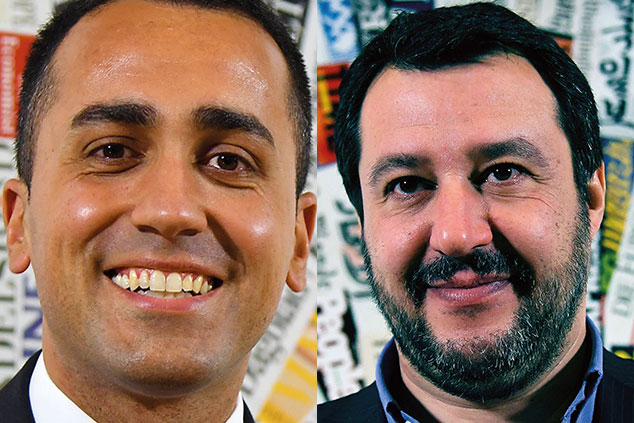
Another Project Fear is well under way in Europe, but Italy’s new government has some good ideas.
The Milan index is falling sharply. The bond markets are rattled. Money is flooding out of the country and businesses are getting out before it is too late. As an eccentric coalition between the techno-utopian Five-Star Movement and the right-wing populist League takes power in Rome, with an obscure prime minister appointed this week, markets are nervous. There have been dire warnings of the catastrophic impact of the coalition’s policies and how the Italian economy will be plunged into chaos if they don’t come to their senses very quickly.
Progretto Paura is in full swing, but it will turn out to be just as batty as Project Fear. At the time of the Brexit referendum, we were told that the economy would collapse if we pulled out of the EU, that companies would flee, unemployment would soar, and house prices would tumble. It didn’t happen. Italy will be fine, too – some of the new policies may even give it a welcome boost.
Three policies to cheer
Take taxes first. The League’s main pledge of a flat tax of 15% on both people and companies has been slightly watered down to two rates of 15% and 20%. But that would still make it the most radical tax reform of any major nation in the past decade, out-gunning even Donald Trump’s near halving of America’s corporate rate.
It would give Italy one of the most competitive tax regimes in Europe, with a corporate rate only a little higher than Ireland’s, and a personal rate significantly lower. It’s not hard to imagine that a few multinationals might decide they prefer the Amalfi to the Cork coast when deciding where to base themselves. A flat tax could well make Italy a destination of choice for inward investment, instead of a relative backwater.
At the same time, wherever flat taxes have been tried – Hong Kong for example – they have been a powerful boost to competitiveness, improving collection rates (hardly a minor point in Italy) and improving competitiveness. There is no reason why Italy should be any different.
Next up, the coalition is proposing what amounts to a parallel currency to run alongside the euro. The details are complex, but essentially government payments would be made in the form of IOUs that would become an alternative form of money. Would that work? No-one really has any idea. But if it did, it might provide an elegant escape route for countries trapped inside a dysfunctional single currency that clearly doesn’t work for them. Big business could use the euro, while everyone else used the alternative currency. Some of the advantages of the single currency would be maintained, while the rest of the economy was allowed to breathe again.
Of course, there are some odd ideas in there. A universal basic income – another of its pledges – will be expensive and, more seriously, sever the link between work and money, which is not going to help any economy. And Italy doesn’t have the advantage of a sharp devaluation, which helped the UK massively in the immediate aftermath of the Brexit vote (although the parallel currency, if it could be made to work, might achieve the same thing).
But there is no question that the new government’s programme will deliver a huge stimulus to demand, both from massive tax cuts and from the huge increase in welfare spending. You don’t exactly need to be John Maynard Keynes to work out that if an economy has as much slack as Italy’s evidently does, a massive injection of demand is only going to help. Its new government may well be eccentric, occasionally bonkers, and probably not very stable. But it will also give the economy a major lift – and that is precisely what it needs.